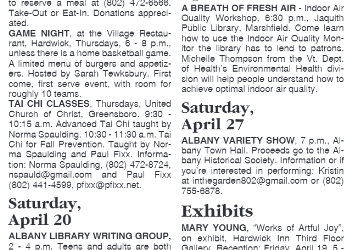
BURLINGTON, VT – Ahead of Monday’s total solar eclipse, U.S. Senator Peter Welch (D-Vt.), a member of the Senate Committee on Commerce, Science and Transportation, shared eye safety tips from the National Aeronautics and Space Administration (NASA).
Northern Vermont will be one of the best places in the nation to see the total solar eclipse. You can find the exact time of ‘totality,’ or the moment the moon crosses directly in front of the sun, by inputting your zip-code into NASA’s interactive Eclipse Explorer tool.
“Vermonters and folks from across New England are so excited for Monday’s total solar eclipse – and we’re excited to share all that Vermont has to offer! Margaret and I picked up our eclipse glasses and are counting down the hours,” said Sen. Welch. “We hope everyone viewing the eclipse from Vermont follows the safety guidelines, drives safely and with patience, and—of course—enjoys this celestial spectacle.”
Senator Welch shared the following solar eclipse viewing safety tips from NASA:
- View the sun through eclipse glasses or a handheld solar viewer during the partial eclipse phases before and after totality.
- Always inspect your eclipse glasses or handheld viewer before use; if torn, scratched, or otherwise damaged, discard the device. Always supervise children using solar viewers.
- Do NOT look at the sun through a camera lens, telescope, binoculars, or any other optical device while wearing eclipse glasses or using a handheld solar viewer — the concentrated solar rays will burn through the filter and cause serious eye injury.
- You can view the eclipse directly without proper eye protection only when the Moon completely obscures the sun’s bright face – during the brief and spectacular period known as totality. (You’ll know it’s safe when you can no longer see any part of the sun through eclipse glasses or a solar viewer.)
- As soon as you see even a little bit of the bright sun reappear after totality, immediately put your eclipse glasses back on or use a handheld solar viewer to look at the sun.
- Even during a partial or annular eclipse, or during the partial phases of a total eclipse, the sun will be very bright. If you are watching an entire eclipse, you may be in direct sunlight for hours. Remember to wear sunscreen, a hat, and protective clothing to prevent skin damage. Find more sun safety tips from the U.S. Food and Drug Administration here.
- Seek expert advice from an astronomer before using a solar filter with a camera, telescope, binoculars, or any other optical device. Note that solar filters must be attached to the front of any telescope, binoculars, camera lens, or other optics.




